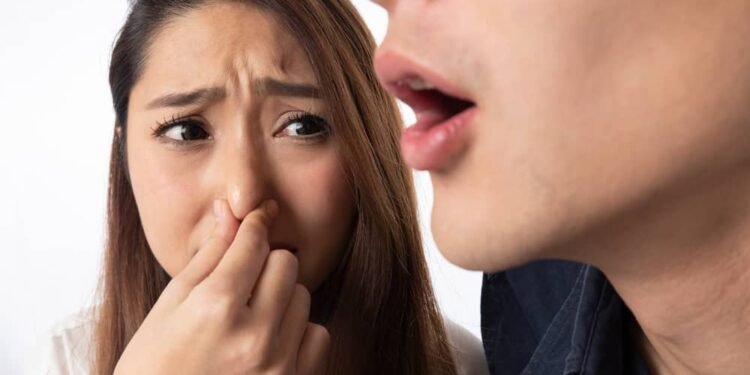Is bad breath normal after wisdom teeth removal? Halitosis, also known as bad breath, is a prevalent oral health issue that often accompanies dental problems such as tooth decay. Another situation where bad breath can become a concern is after wisdom teeth removal or other oral surgeries. While post-extraction bad breath is generally not an immediate cause for alarm, it can indicate underlying issues. In this article, we’ll delve into the causes of bad breath after tooth extraction and offer practical tips for managing it effectively.
Is Bad Breath Normal After Wisdom Teeth Removal? : Causes of Bad Breath After Tooth Extraction
1. Bacterial Infection
- Bad breath after tooth extraction can result from bacterial infections in the wound left by the extracted tooth. Many oral bacteria produce unpleasant-smelling chemicals that affect your breath. If you experience symptoms like fever, pus, severe pain, and bad breath, it could be a sign of an infected wound. In such cases, immediate dental treatment is crucial
2. Post-Surgery Bleeding
- Minor bleeding from your gums after surgery is not uncommon. Accumulated blood in your mouth, particularly overnight, can contribute to foul-smelling breath. If bleeding persists after a tooth extraction, consult your dentist to rule out any complications
3. Dry Socket
- A dry socket is a situation where the blood clot in the empty tooth socket fails to form correctly or becomes dislodged, exposing the bone to debris. It is most prevalent after wisdom tooth extractions. Risk factors include smoking and non-compliance with post-surgery instructions from your dentist
4. Poor Oral Hygiene
- After tooth extraction, maintaining proper oral hygiene can be challenging due to discomfort. Many people avoid or lightly brush around the extraction site, forming bacterial plaque and food debris, which can cause an unpleasant odor. It’s crucial to prioritize good oral hygiene during the recovery period to prevent infection
5. Dry Mouth
- Saliva is crucial in cleansing your mouth of bacteria and odour-causing chemicals. Reduced saliva production is a common side effect of pain medications prescribed after tooth extraction. Additionally, the use of a breathing tube during surgery can leave your mouth dry upon waking up
How to Manage Bad Breath After Tooth Extraction
To address and prevent bad breath after a tooth extraction, follow these practical steps:
1. Maintain Excellent Oral Hygiene
- Invest in a toothbrush with soft bristles and consult your dentist for guidance on gentle brushing around the extraction site. After the initial recovery period, brush and use mouthwash after every meal. Don’t forget to clean your tongue, as it harbors bacteria that can migrate to the empty tooth socket
2. Use Mouthwash Sparingly
- While mouthwash can help eliminate bacteria that accumulate due to post-surgery dryness, it’s advisable to avoid using it in the first 24 hours after extraction when the wound is fresh
3. Stay Hydrated
- Dryness in the mouth contributes to bad breath. Drink a lot of water to combat dry mouth, but refrain from excessive rinsing and spitting, as this removes saliva’s protective benefits
4. Smoking Cessation or Alternatives
- Smoking hinders wound healing, increases the risk of dry mouth, and elevates the chance of developing a dry socket. If you smoke, consider quitting during the recovery period. Alternatively, switch to a less harmful delivery mechanism like vaping, although this should still be minimized for optimal healing
Conclusion: Is Bad Breath Normal After Wisdom Teeth Removal?
Bad breath after wisdom teeth removal or other dental surgeries is a common issue, often attributed to factors like bacterial infections, post-surgery bleeding, dry sockets, poor oral hygiene, and dry mouth. While it may not always indicate a severe problem, addressing it promptly and effectively is essential for your oral health and comfort during recovery.




